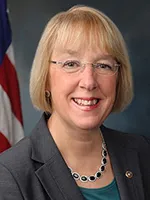Senior Reporter
Congressional Funding Leaders Eye Fiscal 2024 Bills

[Stay on top of transportation news: Get TTNews in your inbox.]
Moving on from monthslong negotiations over the nation’s debt ceiling, congressional leaders are turning their attention to the annual budget process on Capitol Hill.
Advancing fiscal 2024 appropriations legislation is now front-and-center for the lawmakers tasked with determining funding allocations for federal agencies. Senior policymakers kicked off a series of meetings this month in an effort to arrive at bipartisan legislation that would ensure funding for the U.S. Department of Transportation, and other federal institutions, for the upcoming fiscal cycle.
The debt limit saga, which culminated with the bipartisan backing for raising the nation’s borrowing authority, had eclipsed negotiations related to the new batch of fiscal 2024 measures. Specific to the appropriations work, House Republican leaders and Senate Democrats in control of their chamber have expressed differing perspectives on spending levels and priorities. Yet, at this point in the process, both sides have signaled a willingness to avoid a partial shutdown of certain federal agencies if the fiscal bills are not approved by Sept. 30.
The fiscal 2024 term begins Oct. 1.

Granger
House Appropriations Chairwoman Kay Granger (R-Texas) linked the culmination of the debt limit negotiations last month with the current funding process expected to dominate talks on Capitol Hill this summer. “This agreement paves the way for appropriations bills to be signed into law for the next two fiscal years — with funding prioritized for our military and our veterans. At the same time, this agreement reduces and reallocates lower-priority spending,” the chairwoman observed on May 31.
Granger’s Senate counterpart, Appropriations Committee Chairwoman Patty Murray (D-Wash.), shared a sense of urgency pertaining to the appropriations process before her panel.

Murray
Reacting to Congress’ approval of a debt limit increase, Murray said: “I am focused now on keeping our appropriations process moving forward in the Senate and doing absolutely everything I can to protect the investments that help working people get by and ensure this great country lives up to its promise. As chair of the Senate Appropriations Committee, I will continue to be a voice for working families all across our country.”
The appropriations committees have yet to announce their consideration of fiscal 2024 transportation funding legislation.
At a House hearing in April, Transportation Secretary Pete Buttigieg pressed lawmakers to support the Biden budget plan. The secretary highlighted the White House’s funding proposals for safety programs at the National Highway Traffic Safety Administration. The agency’s operations are designed to help tackle ongoing roadway safety concerns. The secretary explained a $3.1 billion funding request for highway safety programs will “save lives through much-needed projects, as well as advanced safety research initiatives.”
The White House budget request also dedicates attention to supply chain connectivity operations. The administration is proposing $230 million for the Port Infrastructure Development Program to advance projects that would enhance the movement of freight at commercial ports. The secretary told House lawmakers the administration’s record with regard to supply chains has “strengthened ports around the country — from smaller ports like Helena, Ark., and Kaskaskia, Ill., to major ones in Portsmouth, Va., and New York City.”
Want more news? Listen to today's daily briefing above or go here for more info
Overall, Biden’s $6.9 trillion budget proposal would dedicate nearly $1 billion for the Federal Motor Carrier Safety Administration. The agency is tasked with regulating commercial heavy-duty trucks and buses.
The FMCSA budget breakdown includes $435 million for its safety operations division and $516.3 million for its motor carrier safety grants unit. Specific to the U.S. Department of Transportation, the White House budget plan would provide the Federal Highway Administration with $60.8 billion, the Federal Transit Administration with $17 billion, the Federal Railroad Administration with $4.8 billion, NHTSA with $1.3 billion and the Pipeline and Hazardous Materials Safety Administration with $387.3 million.




